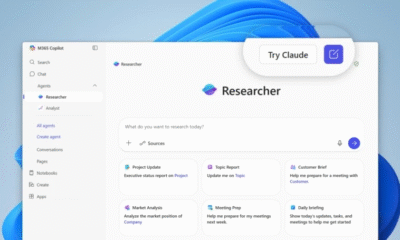Startups
The Power of Reputation: How a Few Words Can Define a Legacy

When you start typing a few letters into Google, the search bar suggests completions for your query. This feature, known as Autocomplete, is a time-saving tool for most users. However, for individuals and businesses, the suggested words can have significant consequences. A single negative phrase associated with a name can quickly influence how others perceive you without even clicking on the search results.
The Functionality of Autocomplete
Autocomplete generates search predictions based on various factors:
- Popular searches made by other users
- Location and language settings
- Previous search behavior
For instance, if you type “best restaurants,” the suggestions may include “best restaurants near me” or “best restaurants in New York.” While the tool feels intuitive, the suggestions are not random; they are based on patterns extracted from billions of searches.
Therefore, if a significant number of people search for “Brand X complaints,” Google may start suggesting that phrase to everyone.
Significance of Autocomplete
Autocomplete goes beyond just convenience. Studies reveal that 61% of users click on one of the suggested options. In practice, this means that a suggestion can shape people’s perceptions of a business even before they view the first search result.
If the suggestion includes terms like scam, lawsuit, or problems, the negative impact is immediate. Trust diminishes, clicks decrease, and unfavorable narratives spread rapidly.
Functionality of the Autocomplete Algorithm
Google’s Autocomplete system has evolved over time. Earlier versions primarily matched keywords without much context. Today, advancements like RankBrain and BERT enable the algorithm to consider meaning, intent, and relevance.
The suggestions now take into account more than just search volume; they analyze patterns, recent trends, and regional interests. This makes Autocomplete a potent tool but also unpredictable.
We earn a commission if you make a purchase, at no additional cost to you.
Challenges Faced by Businesses
Businesses do not have direct control over Autocomplete. Google only allows removals in cases involving hate speech, explicit content, or clear policy violations. This leaves companies to influence perception through indirect methods.
Common obstacles include:
- Negative terms outranking neutral ones
- Slow response to detrimental trends
- Limited internal monitoring of suggestions
In the absence of proactive management, negative associations can persist for extended periods.
Strategies to Counteract Negative Autocomplete Suggestions
While it is not possible to immediately remove negative phrases, there are steps that can be taken to influence the suggestions users see.
Effective strategies include:
- Regularly monitoring suggestions using tools like Google Trends or Ubersuggest
- Creating positive, keyword-rich content that competes with harmful terms
- Encouraging genuine reviews and testimonials to alter search behavior
- Swiftly responding to customer feedback to mitigate negative conversations
The more consistent and credible the positive signals, the less likely harmful Autocomplete results will dominate the search suggestions.
Ethical and Legal Considerations
There exists a delicate balance between managing reputation and manipulating it. Engaging in practices like fabricating reviews or artificially suppressing criticism can backfire, leading to diminished trust or potential legal repercussions.
The recommended approach is transparency: acknowledging mistakes, showcasing improvements, and fostering authentic dialogue with customers. Autocomplete reflects public interest, and brands that address issues transparently are more likely to reshape the narrative in the long run.
Future Outlook for Autocomplete
Google continues to enhance Autocomplete with increased personalization. Factors such as past searches, location, and device history already influence suggestions. Future updates may further tailor results to individual users.
This personalized approach means that reputations will not solely rely on global trends but also on local and personal preferences. While personalization can enhance relevance, it also introduces risks of bias, misinformation, and enduring reputational damage if negative suggestions gain prominence.
Key Takeaway
Google Autocomplete is often underestimated, yet a few words in that dropdown list can significantly shape how individuals perceive a person or brand. A negative phrase can easily become the focal point for people’s impressions.
While businesses cannot directly control Autocomplete, they can influence it by monitoring, responding promptly, and creating authentic and valuable content. In today’s search-driven environment, reputation often forms even before a user hits “Enter.”
-

 Video Games2 days ago
Video Games2 days agoGoku Takes on the Dragon Ball FighterZ Arena
-

 Video Games3 days ago
Video Games3 days agoTekken 8: Rise of the Shadows
-

 Amazon3 days ago
Amazon3 days agoNeil Young Takes a Stand: Pulling Music from Amazon in Protest of Jeff Bezos’ Support for Trump
-

 Tech News3 days ago
Tech News3 days agoSamsung Galaxy UI 8: Embracing the Big Free AI Upgrade
-

 Microsoft20 hours ago
Microsoft20 hours agoMicrosoft Integrates Anthropic’s Claude AI Models into 365 Copilot: A Deepening Relationship with OpenAI
-

 Cars23 hours ago
Cars23 hours agoRevving into the Future: Ferrari’s Plan to Unleash 20 New Models, Including Electric Vehicles, by 2030
-

 Security3 days ago
Security3 days agoCritical Vulnerability Exposed: Oracle EBS Targeted in Recent Cyber Attacks by Cl0p Hackers
-

 Apple3 days ago
Apple3 days agoExploring the Dystopian Realms of Pluribus: An Apple Original Series Trailer






























